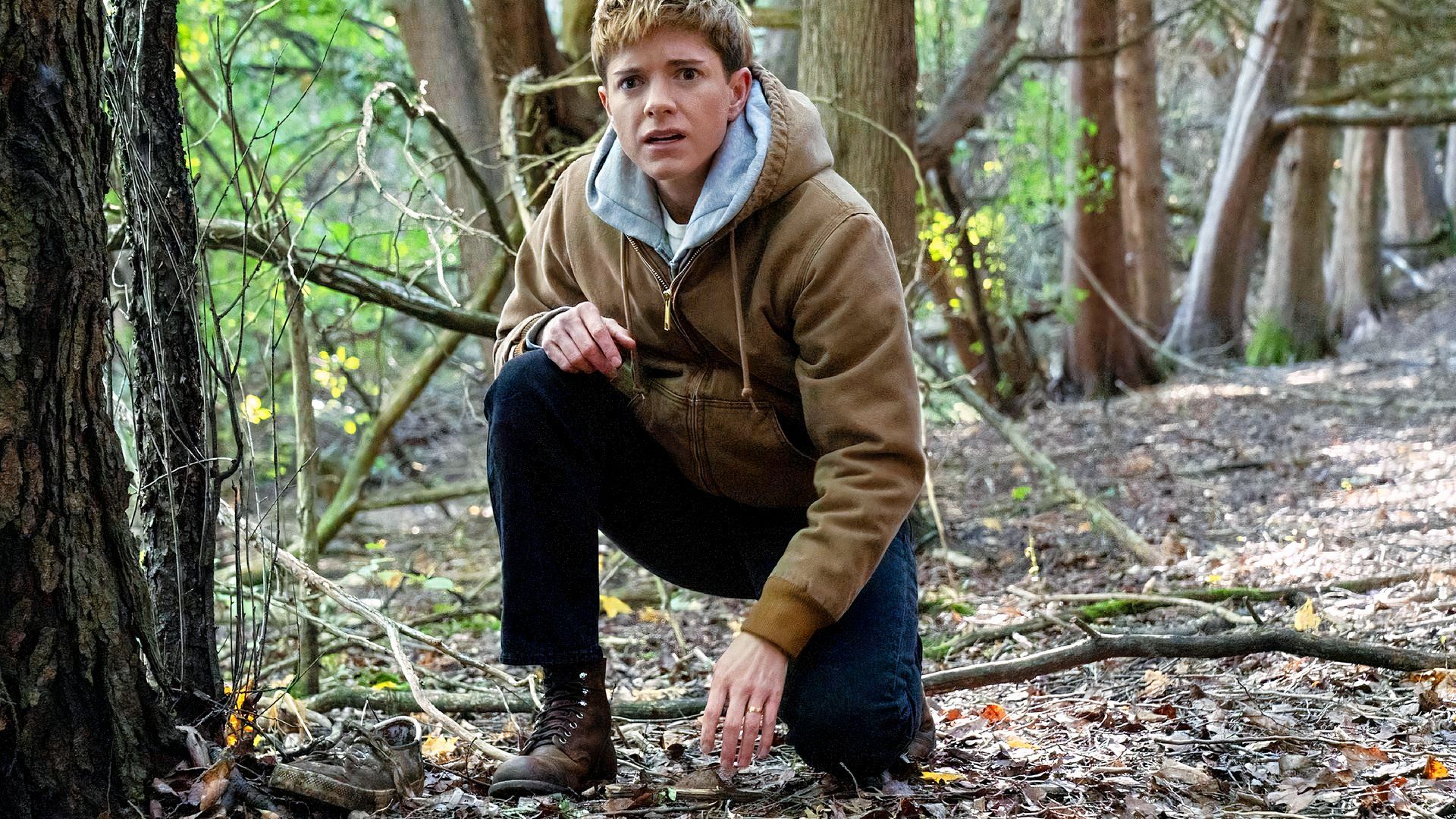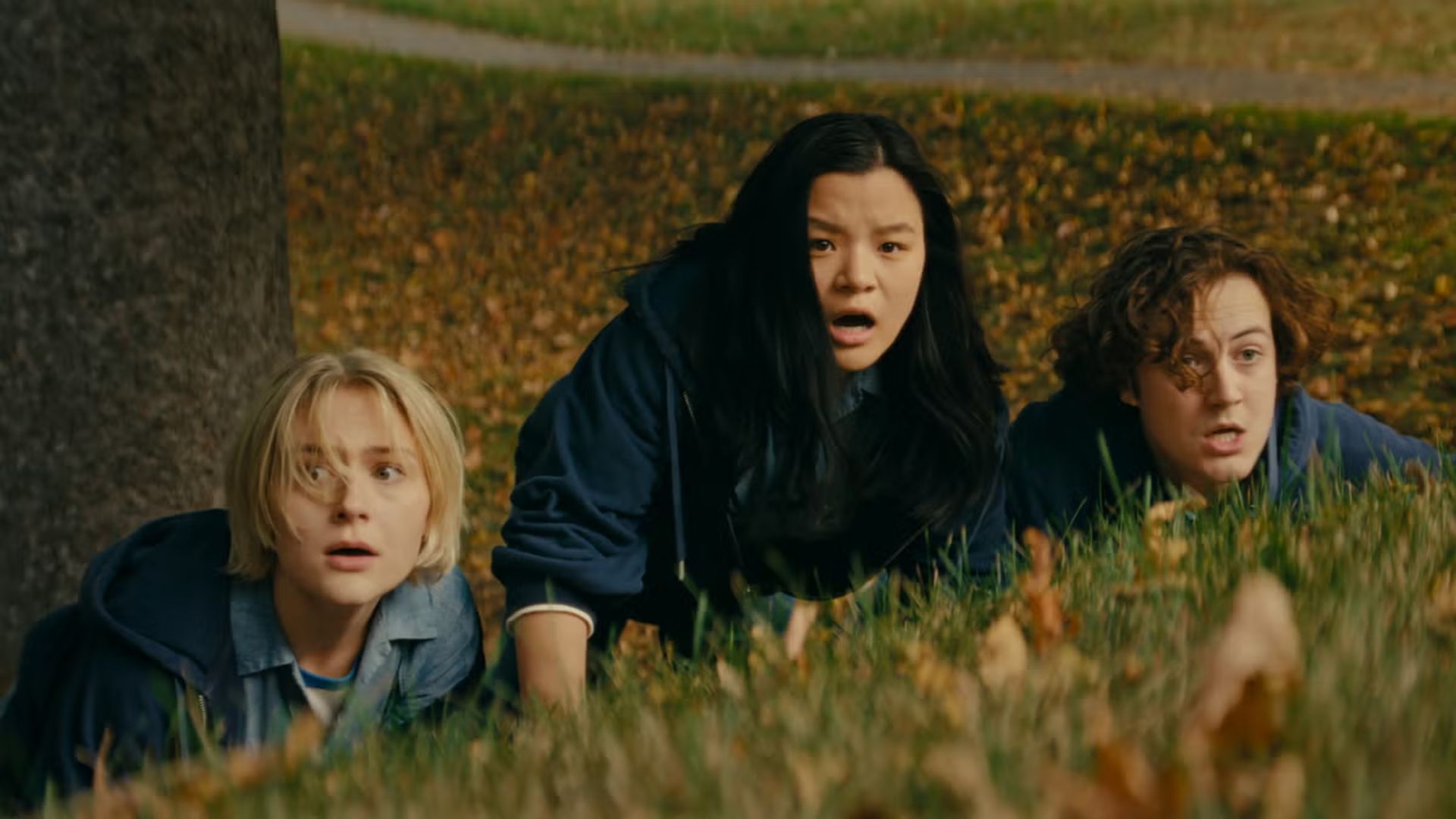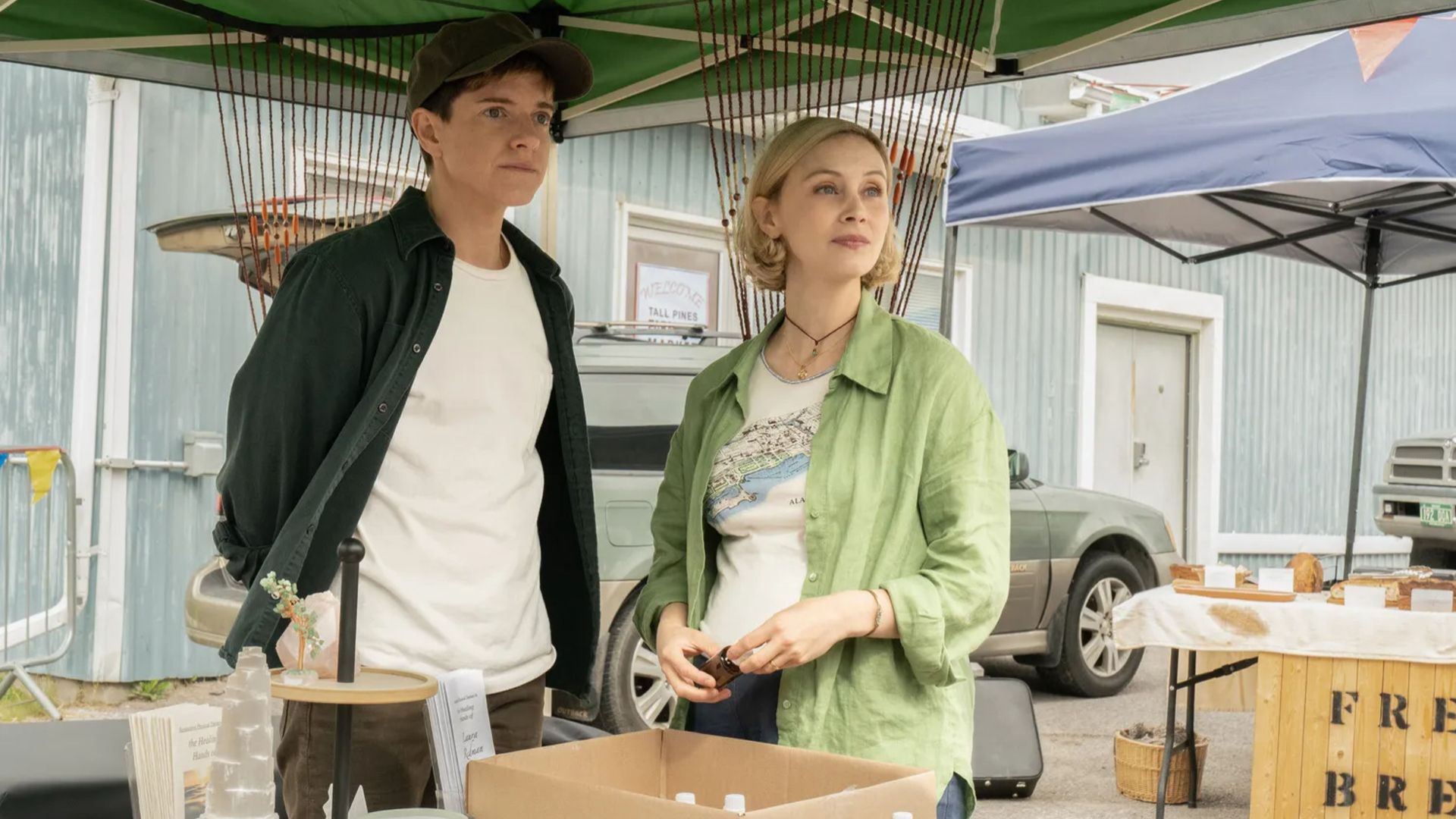
Netflix’s new series, *Wayward*, quickly became a hit after its release on September 25th. Within just five days, it was the platform’s most popular scripted drama – and it’s easy to see why. The creepy and suspenseful thriller captivated viewers with its dark and complex plot. What many people don’t realize is that the story is based on real events, including the history of cults and the problematic practices of troubled teen programs.
This limited series centers on Alex and Laura, a married couple expecting a baby, as they start a new life in a peaceful-looking town. Meanwhile, the story also follows two teenage girls, Abbie and Leila, as they deal with typical teen issues. Their lives take a dark turn when they’re sent to Tall Pines Academy, a school run by the seemingly friendly, but secretly dangerous, Evelyn Wade.
This limited thriller series, created by Mae Martin, who also wrote and stars in it, delves into how past trauma affects families and how the troubled teen industry—often called ‘rehabilitation’—exploits and psychologically harms young people through manipulation and brainwashing.
Real-Life Cults Served as Inspiration for ‘Wayward’

Netflix
Martin, a comedian famous for their hilarious stand-up, explored more serious themes with their project, *Wayward*. They shared with Tudum that the subject matter has been something they’ve thought about deeply for a long time, and it represents a shift from their usual lighthearted work.
I find myself constantly drawn back to the teenage years, whether I’m talking about them or writing characters who are going through it. It was such a powerful and emotional period in my own life – and I think it is for everyone – and I’ve always wanted to really explore those raw, intense feelings in my work. I’m finally ready to dive directly into that time and capture what it truly felt like.
Martin’s inspiration for the series also came from a personal connection – a friend who, at 16, was sent to one of these troubled teen programs. When she returned home with shocking stories, Martin began researching the industry and discovered its troubling history. That friend, Nicole, eventually helped with the series as a consultant. Martin’s research revealed that many of these programs originated from self-help groups and cults in the 1970s, often prioritizing profit over ethical practices. Martin realized this made for a compelling thriller. One key organization that stood out in their research was Synanon.
Synanon’s Dark History

Netflix
Synanon began in the 1950s, founded by Charles Dederich, with the stated goal of helping people overcome substance abuse. However, Dederich, previously involved with Alcoholics Anonymous, used harsh and questionable methods. The program focused on personal responsibility and self-reliance, but the reality was far from gentle. Starting as a small group in Venice, California, originally called the “Tender Loving Care Club,” Synanon quickly became known for a confrontational practice called “The Game.” This allowed members to openly criticize and belittle others’ justifications for their substance use, often involving mockery and humiliation.
Dederich originally planned Synanon as a two-year live-in program. It unexpectedly became very popular, leading him to seek a larger facility. In 1963, he purchased an 18-room Victorian mansion in Westport, Connecticut. Interestingly, the novel *Wayward* is also set in New England, in the fictional Vermont town of Tall Pines. However, Synanon’s time in Connecticut was short-lived; just three years later, the state’s Supreme Court forced them to leave due to zoning violations. The following year brought significant changes to the organization, transforming it from a rehabilitation program into what many would describe as a cult. The program, once celebratory with members graduating after recovery, stopped allowing people to leave. This led to a series of damaging consequences, including the separation of couples, communal child-rearing, and a disturbing practice of raising infants in a place called ‘the hatchery’.
As a lifelong movie buff, I stumbled across the story of Synanon, and it’s truly disturbing. Even after concerns arose, throughout the 70s, troubled teens were still being sent to their Malibu facility by juvenile agencies and the courts. What really struck me is that, unlike the adults who joined voluntarily, these kids had no say in the matter. And the methods Charles Dederich used just didn’t work, to put it mildly. Things quickly turned violent – what started as verbal challenges, known as ‘The Game,’ devolved into outright physical abuse. Kids tried to escape, but by 1974, Synanon had somehow gained a kind of religious status, boasting 1,300 members and over $30 million in assets. It’s heartbreaking to think that an organization that began with non-violent ideals completely abandoned them when teenagers were added to the mix. Dederich started using a group called the ‘Imperial Marines’ to control everything, and escapes were met with brutal force. Former member Phil Ritter, for example, was nearly beaten to death when he tried to leave. It’s a chilling story of how good intentions can go horribly wrong.
As more people started to realize just how awful things were inside Synanon, and after one specific incident really started Dederich’s downfall, the whole organization went bankrupt in 1991. But honestly, the damage Synanon did hasn’t gone away. You can still see echoes of their harsh, “tough love” methods in a lot of teen rehab programs today. Paris Hilton, for example, has talked openly about how being sent away as a teen was deeply traumatic, and it really made me think about how Synanon’s ideas unfortunately stuck around.
Beyond a typical thriller, *Wayward* explores a deeply personal ‘what if’ scenario for its creator, Dana Martin. Martin has shared feeling guilty about not helping a friend, Nicole, when she was in an institution, and *Wayward* is a way of examining that regret. In an interview with the *Los Angeles Times*, Martin explained that the show isn’t meant to target any specific institution, but rather to encourage viewers to consider the issues. The eight-episode series is now streaming on Netflix.
Read More
- All Golden Ball Locations in Yakuza Kiwami 3 & Dark Ties
- Gold Rate Forecast
- Hollywood is using “bounty hunters” to track AI companies misusing IP
- What time is the Single’s Inferno Season 5 reunion on Netflix?
- A Knight Of The Seven Kingdoms Season 1 Finale Song: ‘Sixteen Tons’ Explained
- NBA 2K26 Season 5 Adds College Themed Content
- Mario Tennis Fever Review: Game, Set, Match
- Pokemon LeafGreen and FireRed listed for February 27 release on Nintendo Switch
- A free trip to the Moon will soon be possible. This upcoming exploration simulator is all about scientific realism
- 2026 Upcoming Games Release Schedule
2025-10-09 01:01